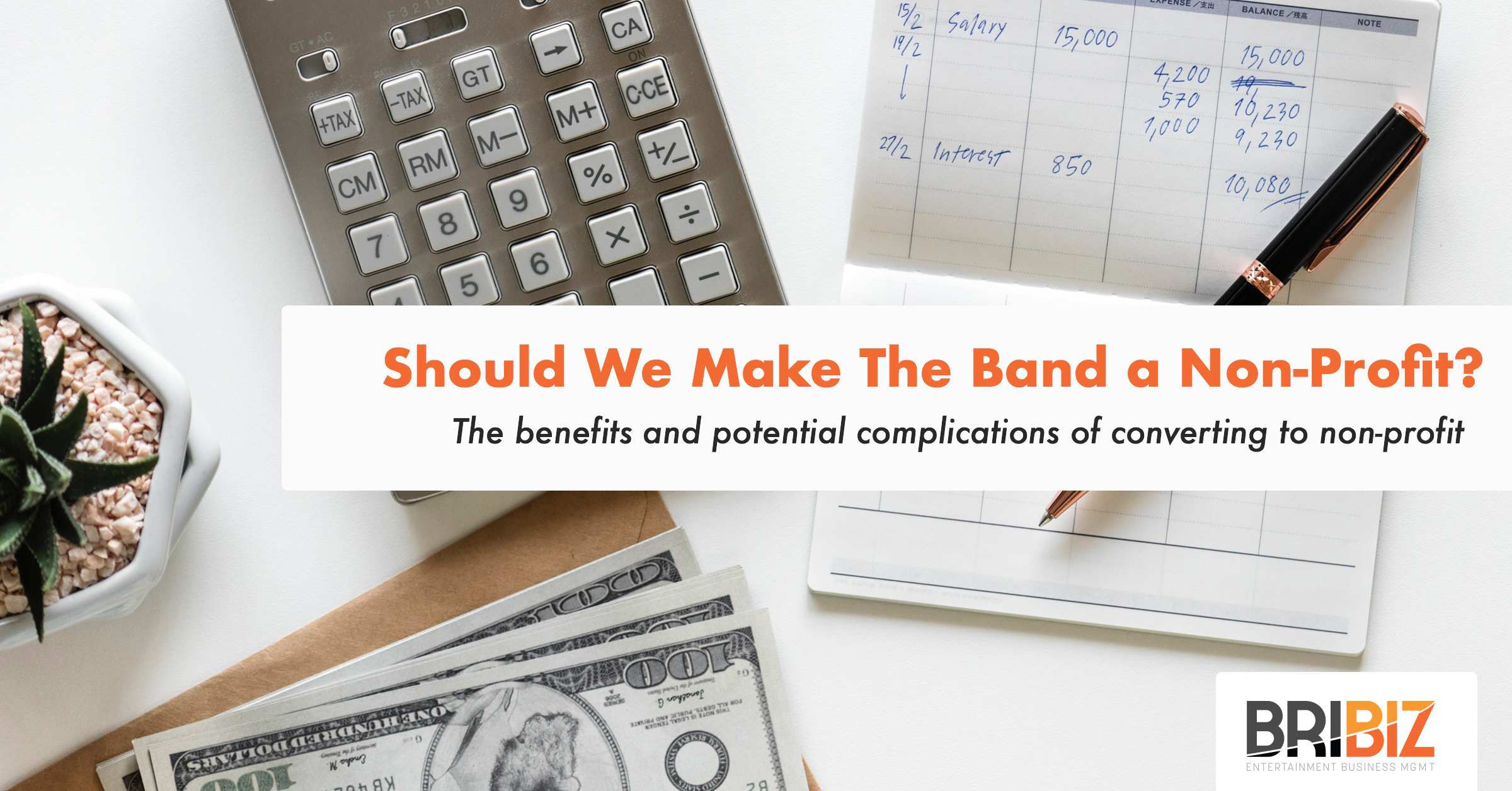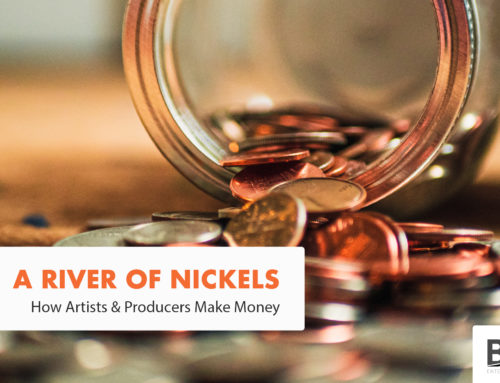Sitting on the tour bus, your band is trying to answer that same old question: how can you cut back on expenses? You’re diligent with your money, trying to save wherever you can—but there’s always the feeling that something else could be done.
Then, someone suggests: Why don’t we make the band a nonprofit?
For Christian artists, this question is especially relevant, as much of what you do is considered a part of your ministry. You make sacrifices to create your music and tour, often doing it for noble reasons. Isn’t there some way to save a little money by becoming nonprofit?
When clients ask me this question, I like to run them through a few follow-up questions to see if nonprofit status is for them (spoiler alert: most of the time, it isn’t). If you’ve ever wondered this same thing, here are some things for you to think about:
Question 1: Why do you want to do this?
For many people, there is a common misconception that “nonprofit” status means “no taxes.” But this isn’t necessarily the case. Nonprofit status may shield your band as an organization from certain taxes, but you’ll still have to withhold your federal income tax from any money you personally make from the band, including income from sales, royalties, shows, etc. So, if tax relief is your motivation, jumping through the hoops to become nonprofit probably isn’t worth all the trouble for you. It’s the band that’s nonprofit, not the people in it.
On the other hand, if you have a clear vision for a nonprofit service separate from your band, then registering as a nonprofit may work for you. Let me give you an example: a regular band who basically just tours and generates revenue through sales won’t want to be a nonprofit (for reasons I list below). But if those same members of the band want to start an organization that provides clean water in Africa, now that would work well as a nonprofit. In that case, there would be different revenue streams, different mission statements, different ways of reporting funding.
You’ll need to make sure your motivation is on point because of this next question:
Question 2: How complicated do you want to make it?
Over the last 5-7 years, the IRS has clamped down on approvals for this type of nonprofit. We know firsthand several bands with solid applications who have been denied. The application process is not easy. It costs money to apply (that’s before getting into legal representation) and hours of time invested in paperwork. Oh, and did you know you have to apply for both a nonprofit and tax-exempt status? That’s right—they aren’t the same thing. Finally, if a band is denied, it’s that much harder to be reconsidered the next time.
And if your band is approved for nonprofit status? Now you have to navigate the scrutiny of the IRS. And that’s before you get to the real work.
To operate as a nonprofit, you need to go through miles of red tape. That means you need bylaws, a Board of Directors, mandatory board meetings, etc. There is a mountain of paperwork that needs to be kept up. All in all, it adds a layer of complexity to the operation of your band.
When it comes to the finances of a nonprofit, you also can’t use excess funds in just any way you see fit. Have a great sales month and want to give the band members a bonus? Too bad. All money decisions will require approval from the Board, as it’s their job to make sure all business profits are being used in accordance with the mission statement of the nonprofit organization.
Now some of you may be thinking: That’s fine with me. We don’t see excess revenue from our band. But just because you don’t see it right now doesn’t mean you won’t in the future (Think positive!), and you don’t want to set yourself up for disappointment when that day comes.
One creative approach for managing band money is to set up two separate ventures under the band: one nonprofit, one for-profit. Bands who do this might run sales through the for-profit venture and concerts through the nonprofit. But in that case, you’re doubling the complications for your band, with possibly little return for it (remember, you still pay taxes for anything you take home, nonprofit or not).
Now, I’ve listed many of the complications that arise when your band pursues nonprofit status. But if you have the right vision and motivation, you may be willing to jump through those hoops in order to stay on mission. Before you start filling out paperwork, however, there’s one more question I have to ask:
Question 3: Is it even possible?
Let’s look at your network. Are you on a label that defines success as bringing in profits for artists? I know a band who was denied nonprofit status because of the mission statement of their label. How about your partners? Your associations? Even if your vision falls neatly under a nonprofit setup, you need to take a close look at everyone you do business with.
Now we look at your revenue infrastructure. Do you make most of your money through sales? Then nonprofit won’t work for you—it’s a simple for-profit transaction, an exchange of goods for money. I know some people try to get around this with “suggested donation” signage at shows. While it may work in that limited context, it doesn’t translate well to online platforms or third-party merchandising.
For many bands, even if your heart’s in the right place, and you’re willing to put in the work, the nature of your set-up may keep you from securing nonprofit approval.
What does all this mean?
Does this mean I am anti-nonprofit for you and your band? Not always. There are a few times when being a nonprofit can bring some benefits, like when you want to collect donations from people who’d like the tax write-off. In those cases, you need to examine whether it’s worth the expense and complications on your part.
So, can your band be a nonprofit? Yes, but maybe not in the way you think. The mission and focus of your nonprofit need to be separate from most of your revenue-generating work. You’ll need to make sure the process serves the band’s purpose, rather than confining it.
Hopefully, these questions can help you out next time your band is on the bus, and someone asks the question: Why don’t we make the band a nonprofit?
Sources:
https://nonprofithub.org/featured/how-much-money-do-you-need-to-start-a-nonprofit/
https://www.irs.gov/charities-non-profits/exempt-organizations-what-are-employment-taxes







Leave A Comment